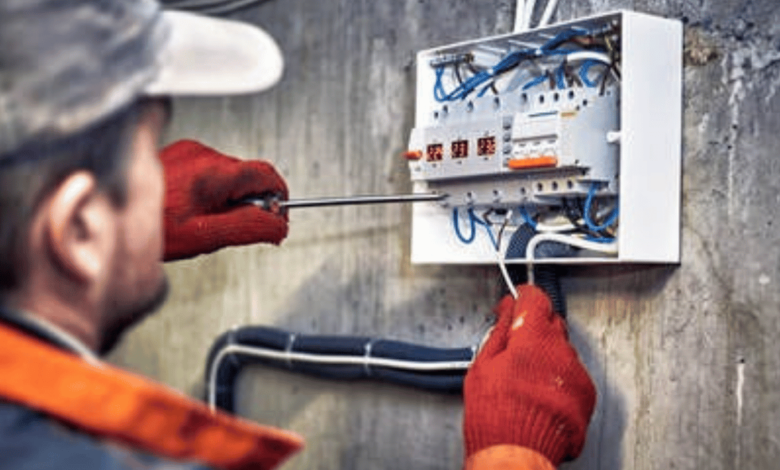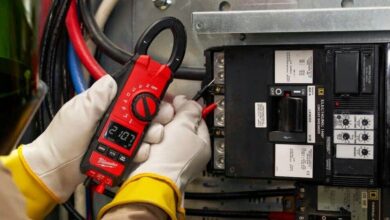Vital Role of Electrical Contractors in Modern Society

An electrical contractor can therefore be described as a business person or a company that undertakes specific construction tasks that involve electrification services. Such systems include domestic wiring and retail to large commercial and industrial power systems. An electrical contractor’s primary duties are to guarantee that electric connections and power inside structures as well as other civil developments are secure, efficient and compliant with the set standards. Landry Mechanicalseeks to discuss the aspects related to contractors involved in electrical works, roles and responsibilities of the electrical contractors, categories of electrical contractors, and the qualifications of these contractors, and finally the importance of the electrical contractors in the growing society.
Responsibilities of an Electrical Contractor
Far from merely fixing wires and accessories, it is the electrical contractor’s duty to do the following: Starting with comprehending the needs of a particular project, electrical systems are introduced and established to serve the project’s requirements besides meeting the regional and national electrical code, laws, and regulations. This comprises of drawings and specifications, permit acquisition, regulatory conformity and onward construction.
The design phase is followed by the control of the actual construction or installation of the electrical systems by the electrical contractors. This incorporates overseeing the task of electricians and other employees, synchronizing with other contractors, and mitigating any problems that may occur during construction. Also, electrical contractors own the electrical systems for they are legally taken responsibilities for their long-term safety and efficiency through maintenance and occasional repairs.
Types of Electrical Contractors
Electrical contractors can be broadly categorized into three main types: There are four classes of electrical contractors as; inside electrical contractors, outside or line electrical contractors, integrated building systems (IBS) or Voice/Data/Video (VDV) electrical contractors.
Inside Electrical Contractors
Inside electrical contractors specialize mainly in the wires and electrical installations in structures. This include houses, offices, and buildings that are meant for production. Their scope of work includes wiring of electrical circuits, electrical connections, installation of electrical outlets and fittings and all electrical appliances that are in the building. They are also involved in electrical upgrades work so that existing systems are in compliance with standards concerning safety and performance.
Outside or Line Electrical Contractors
Line contractors or outsiders are the ones who work in the construction of electrical networks and their facilities that provide connection between the plants and buildings. This is in form of high voltage power transmission and distribution networks in the country. It is their role to erect and service the power lines as well as substations that transfer electricity from the power generating stations to the consumer entities. Construction of the lines work is sometimes done under extreme conditions which make the contractors need special skills, and working tools.
IBS or VDV Electrical Contractors
Residential electrical contractors are IBS or VDV electrical contractors and energize low voltage passes for communication, security, and data relay. This encompasses putting in place and supporting communication instruments for example – telephone lines, optical fibers, wireless connectivity, security enhancements, and conference/ music/ Video systems. These contractors are very important in making sure that the modern buildings have the appropriate technology structures put in place.
Qualifications and Training
In order to become an electrical contractor one has to go to school, gain practical experience and become licensed. So, the majority of electrical contractors have started as electricians who get practical experience from apprenticeship or TVET. These programs are normally in classroom and follow apprentice training and education and may consist of electrical theory, blueprint reading, safety measures and local code requirements.
However, the fundamental requirement that electrical contractors need to fulfil is to get the required licenses and certifications required for legal operation. Licensing of contractors differs from state to state and county to county and normally, one is required to take and pass an exam that covers knowledge in electrical theory, codes and regulations. Another aspect is the participation in learning as in the electrical contractors career it is vital to understand the new technologies and modifications in the codes that regulate the work.
Importance of Electrical Contractors
Electrical contractors are an indispensable part of today’s society as they are responsible for creating, implementing, and supervising electrical work. Those individuals are crucial in every type of establishment, whether it is a private residence or a big office complex. These electrical contractors play an integral role in electrical power distribution thus in case they are not involved the distribution of this power would be unsafe leaving a positive effect on almost every activity in society.
In addition to their technical skills, electrical contractors contribute to the overall construction industry by coordinating with other trades and ensuring that electrical systems are integrated seamlessly into building projects. They also play a key role in promoting energy efficiency and sustainability, implementing systems and technologies that reduce energy consumption and minimize environmental impact.
Challenges Faced by Electrical Contractors
Electrical contractors face a variety of challenges in their work, including keeping up with advancements in technology, managing complex projects, and ensuring safety on job sites. The rapid pace of technological change means that electrical contractors must continuously update their knowledge and skills to remain competitive. This includes staying informed about new products, materials, and methods, as well as understanding how emerging technologies such as renewable energy and smart grid systems impact their work.
Project management is another significant challenge, as electrical contractors often oversee multiple projects simultaneously, coordinating with other contractors and managing timelines and budgets. Effective communication and organizational skills are essential to ensure that projects are completed on time and within budget.
Safety is a paramount concern for electrical contractors, given the inherent risks associated with working with electricity. They must implement strict safety protocols and provide ongoing training to their workers to prevent accidents and injuries. Adhering to safety standards and regulations is crucial to protecting both workers and the public.
Conclusion
Electrical contractors are essential to the construction and maintenance of electrical systems that power our homes, businesses, and industries. Their expertise and dedication ensure that these systems are safe, reliable, and efficient. By understanding the responsibilities, types, and qualifications of electrical contractors, we gain a deeper appreciation for the critical role they play in modern society. Despite the challenges they face, electrical contractors continue to adapt and innovate, contributing to the advancement of technology and the betterment of our built environment.
You May Also Read: Solving Wiring Problems with Effective Electrical Repair Solutions




